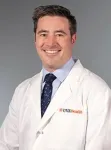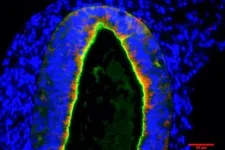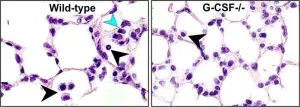Recipients of the award are Kanwal M. Farooqi, M.D., an associate professor of pediatrics at Columbia University Irving Medical Center in New York City and Michelle Ogunwole, M.D., Ph.D., an assistant professor of medicine at Johns Hopkins University School of Medicine in Baltimore. These researchers are in the early stages of their careers as physician scientists and have a focus and passion for increasing diversity in clinical trials.
The cardiovascular research program is exclusive to graduates of the Robert A. Winn Diversity in Clinical Trials Career Development Award (Winn CDA) program. It builds on the instruction, training and professional development that Farooqi and Ogunwole received in their two years of training as recipients of the Winn CDA. This second phase of training is designed to enhance their abilities through advanced clinical trials knowledge, leadership skills, mentorship and sponsorship. The goal is to prepare them to succeed as independent clinical researchers, team members and leaders as they conduct successful diverse clinical trials in the future.
“The American Heart Association is committed to investing in long-term solutions to ensure equitable health and care for all. There is an historical lack of diversity among people both participating in and conducting clinical trials,” said American Heart Association Board of Directors member Svati H. Shah, M.D., M.S., M.H.S., FAHA, who is the volunteer chair of the Association’s Research Committee and director of the Center for Precision Health at Duke University School of Medicine in Durham, North Carolina. “We are excited about the opportunities we can realize to expand the diversity in cardiovascular research through this initiative. Our awardees are passionate about making a difference in underrepresented communities. Their participation in this program will set them forth on a path of exceptional opportunities to become world-class investigators who may very well discover the next big breakthrough in saving lives from heart disease. Most importantly, their work will focus on saving lives of all people, especially those who are often at increased risk based on their sex, race/ethnicity or socioeconomic background.”
Farooqi’s research area of interest is in identifying and treating congenital heart disease (CHD), particularly among young people from underrepresented populations. Her current research focuses on how 3-D printed cardiac modeling can be used to help improve understanding about CHDs, as well as provide a hands-on guide to help both doctors and patients in preparing for and making treatment decisions. Projects she is working on include developing printed patient-specific models for pre-surgical planning to place ventricular assist devices (VADs) in people with CHD who often have limited therapeutic options. She is also working on a proposal to use 3-D printed heart models to improve counseling of parents whose child may have fetal heart defects. Farooqi envisions a time in the future when the use of 3-D models can become a routine standard of care and people can actually have a model of their own heart to take with them to various doctor and medical appointments to ease the continuity of care. Additionally, she is working on a research initiative to mentor junior faculty in pediatric cardiac imaging to guide them through the grant submission process.
Ogunwole’s research focuses on developing and testing postpartum interventions that provide systems change to support healthy lifestyles for Black women with metabolically complicated pregnancies. She is currently conducting a study exploring structural racism's role in the food environment of Black postpartum women, using geospatial analysis to determine connections between food systems that produce and reinforce inequities and obesity-related pregnancy complications such as gestational diabetes. She has also secured a grant, in collaboration with the community-based organization Moveable Feast Baltimore, to develop a program that provides medically tailored meals for postpartum populations and tests the viability of this intervention.
“We are excited to support the American Heart Association in expanding the Robert A. Winn Diversity in Clinical Trials Award Program with the addition of the new Robert A. Winn Clinical Investigator Leadership Award in Cardiovascular Research,” said John Damonti, president of the Bristol Myers Squibb Foundation. "As we have seen in the Winn Career Development Award program, Dr. Farooqi and Dr. Ogunwole have demonstrated deep commitments to achieving greater diversity in clinical trials and advancing health equity within their specialties. It is a privilege to continue to be a part of these scholars’ growth, research and education to help transform the approach to clinical research.”
As part of the training, each awardee will be mentored by an expert clinical trialist who is committed to inclusion of diverse participation in clinical trials. This placement will ensure that awardees will develop the skills not only to conduct high-impact clinical trials, but also to effectively engage with communities to foster active community participation in clinical research.
The participants will engage in a number of research and learning activities through the American Heart Association. They will serve on peer review groups and scientific council committees, attend and present at scientific meetings and have exceptional opportunities to learn from and network with leading researchers from around the world. To facilitate the next generation of well-rounded trialists, awardees will be asked to share their experiences and expertise with participants of Association’s early career programs, such as the Historically Black Colleges and Universities (HBCU) and Hispanic Serving Institutions (HSI) Scholar’s Program.
The Robert A. Winn Diversity in Clinical Trials Award Program (Winn Awards) was established in 2020 by the Bristol Myers Squibb Foundation with the goal of increasing diversity in clinical trials and transforming the clinical research landscape. The program is implemented in collaboration with the American Association for Cancer Research (AACR) and Virginia Commonwealth University (VCU) and is named in recognition of Robert A. Winn, MD, director of VCU’s Massey Comprehensive Cancer Center. Winn is a leader in establishing a 21st-century model for promoting diversity, equity and inclusion in the medical workforce, eliminating health disparities, mentoring upcoming leaders in health and spearheading interdisciplinary approaches to research. He is nationally recognized for his community engagement efforts in promoting new approaches to building trust among populations previously disenfranchised from healthcare or excluded or abused in research.
The American Heart Association is the largest not-for-profit funding source for cardiovascular and cerebrovascular disease research next to the United States government. Since 1949, the Association has invested more than $5.7 billion in cardiovascular, cerebrovascular and brain health research. New knowledge resulting from this funding benefits millions of lives in every corner of the U.S. and around the world.
The Association receives funding primarily from individuals; foundations and corporations (including pharmaceutical, device manufacturers and other companies) also make donations and fund specific Association programs and events. The Association has strict policies to prevent these relationships from influencing the science content. Revenues from pharmaceutical and biotech companies, device manufacturers and health insurance providers and the Association’s overall financial information are available here.
Additional Resources:
Multimedia is available in the right column of the release link. Spanish news release to be added as available Follow AHA/ASA news on X (formerly known as Twitter) @HeartNews
###
About the American Heart Association
The American Heart Association is a relentless force for a world of longer, healthier lives. We are dedicated to ensuring equitable health in all communities. Through collaboration with numerous organizations, and powered by millions of volunteers, we fund innovative research, advocate for the public’s health and share lifesaving resources. The Dallas-based organization has been a leading source of health information for nearly a century. Connect with us on heart.org, Facebook, X or by calling 1-800-AHA-USA1.
END





